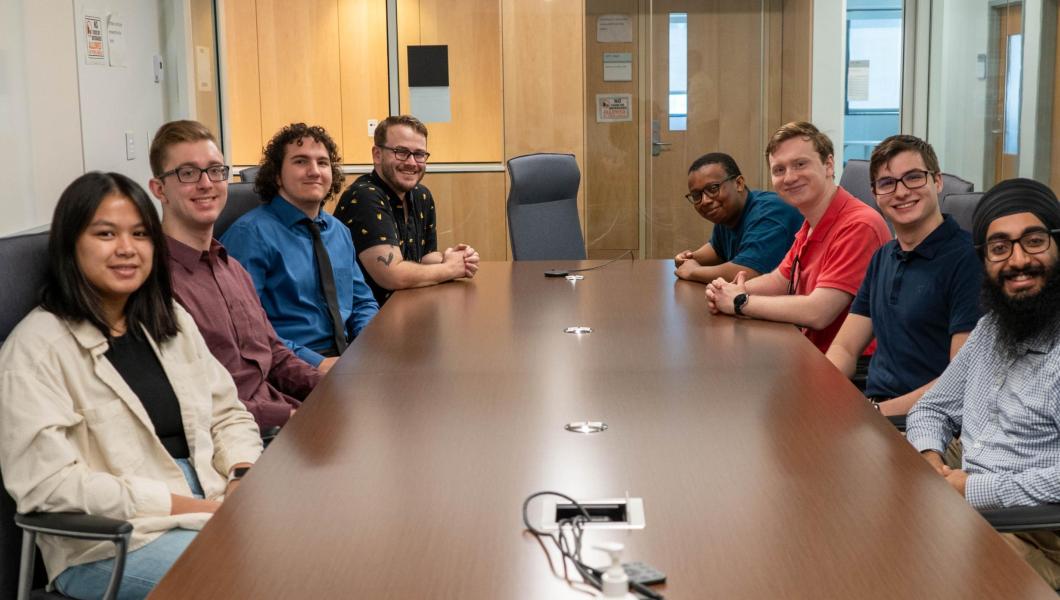Computing Professor's App Manages NJIT Converged Learning

As students return to campus this fall, NJIT and universities around the country face the challenge of adhering to COVID-19 preventative measures such as social distancing and mask use, while also maximizing the usage of the available resources and learning spaces on campus. One of the techniques deployed at NJIT is converged learning, where only a fraction of the students enrolled in a course are physically present in a classroom while the remainder participate online.
While seemingly a simple idea, coordinating this process for thousands of students across hundreds of course sections, with all the special cases involved, could easily become a logistical nightmare for campus staff. Enter back2classroom.app, developed to automatically coordinate the in-person vs. virtual participation of students enrolled in a class.
This benefits the university by generating detailed analytics that give a campus-wide view of student presence, allowing NJIT to know the in-person utilization rate on any given day, or time of day, for different buildings, classrooms and common spaces frequented by students. It also provides students the flexibility to come to class in-person or to learn remotely, depending on their health, preference and the availability of spaces. A student opting not to attend in-person can cancel her reserved space making it available for another student.
back_to_school_app.png

“The goal of this app is to provide equal opportunity to all students to participate in classroom-based learning,” said Pantelis Monogioudis, professor of practice at the Ying Wu College of Computing, who leads the team of developers with Aegean AI Inc., a software-as-service company co-founded by Monogioudis and students from New York University. “The app implements NJIT’s detailed Pandemic Recovery Plan, which lays out attendance limits and protocols, establishing a round-robin policy for classroom attendance. This helps ensure all students wanting time in-person in the classroom to receive that time, while providing options for students for whom learning outside the classroom is their preference.”
“Our professors practice what they preach,” said Ying Wu Dean Craig Gotsman. “Not only do they teach our students computing technologies, but they are also capable of developing sophisticated real-world software systems such as the back2classroom app. This app will play a significant role in getting NJIT back to normal this fall, and also serve as an inspiration for our students, demonstrating how they can apply their acquired knowledge to make a significant impact.”
There are easy-to-follow user guides for students and faculty. Students use the app to reserve or cancel their in-person participation in a class, download their reserved spots to their calendars and mark their attendance for a spot for in-person or remotely. Faculty reference the app to see student statuses and can take attendance.
An additional benefit is the app's potential to support and enhance contact tracing efforts, if needed, thanks to its tracking capabilities. Should a student contract COVID-19, the app has useful data on who else was present in the same class. It knows which seat the student occupied, which would help identify not only what class an infected student attended but also who sat next to them.
Monogioudis and his team worked around the clock during the past few months to finalize and test the app and, with the help of Roweena Carlos, NJIT’s Executive Director for Academic Information Systems, and many others, integrate it into NJIT systems to launch on time for the fall semester.
Other universities have expressed interest in the app and its potential to streamline classroom capacity management and Monogioudis expects several of them to begin using it once the initial run at NJIT proves effective. He also looks forward to expanding use of the app to include common spaces popular with students such as libraries, meeting rooms, group study spaces and dining halls.

